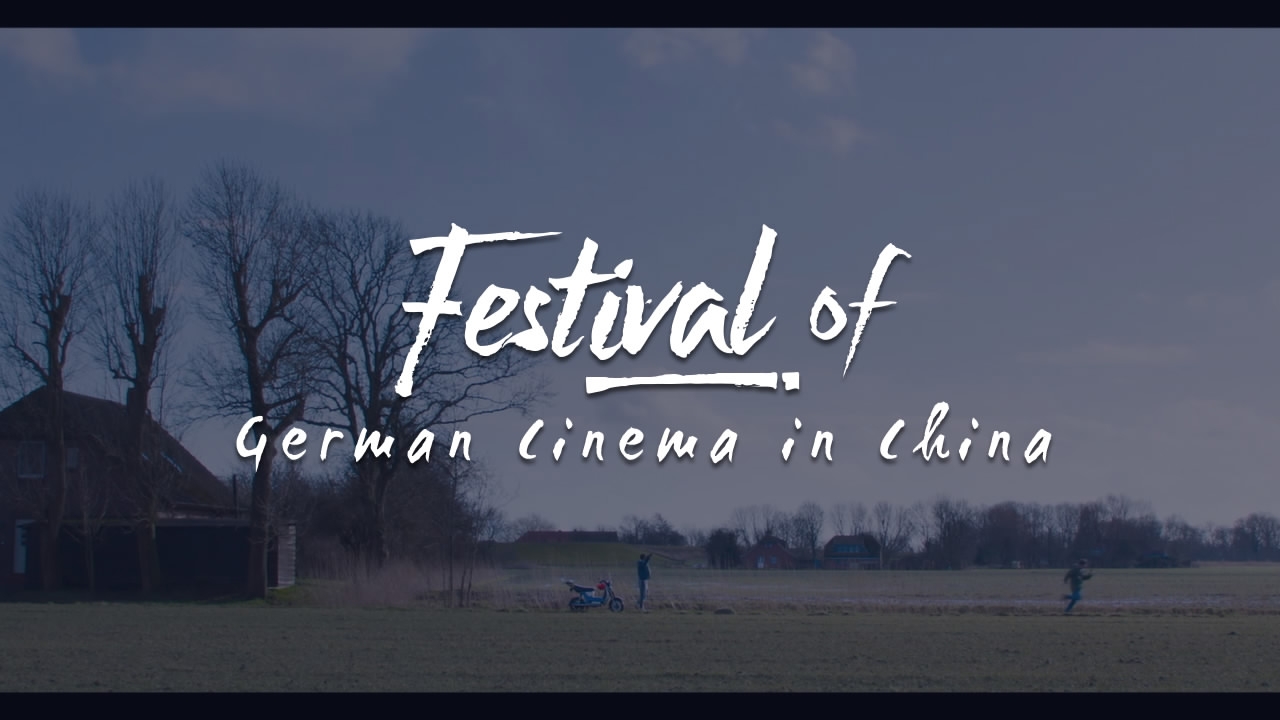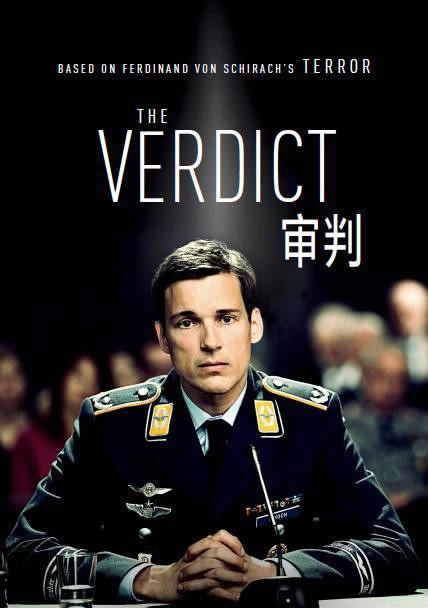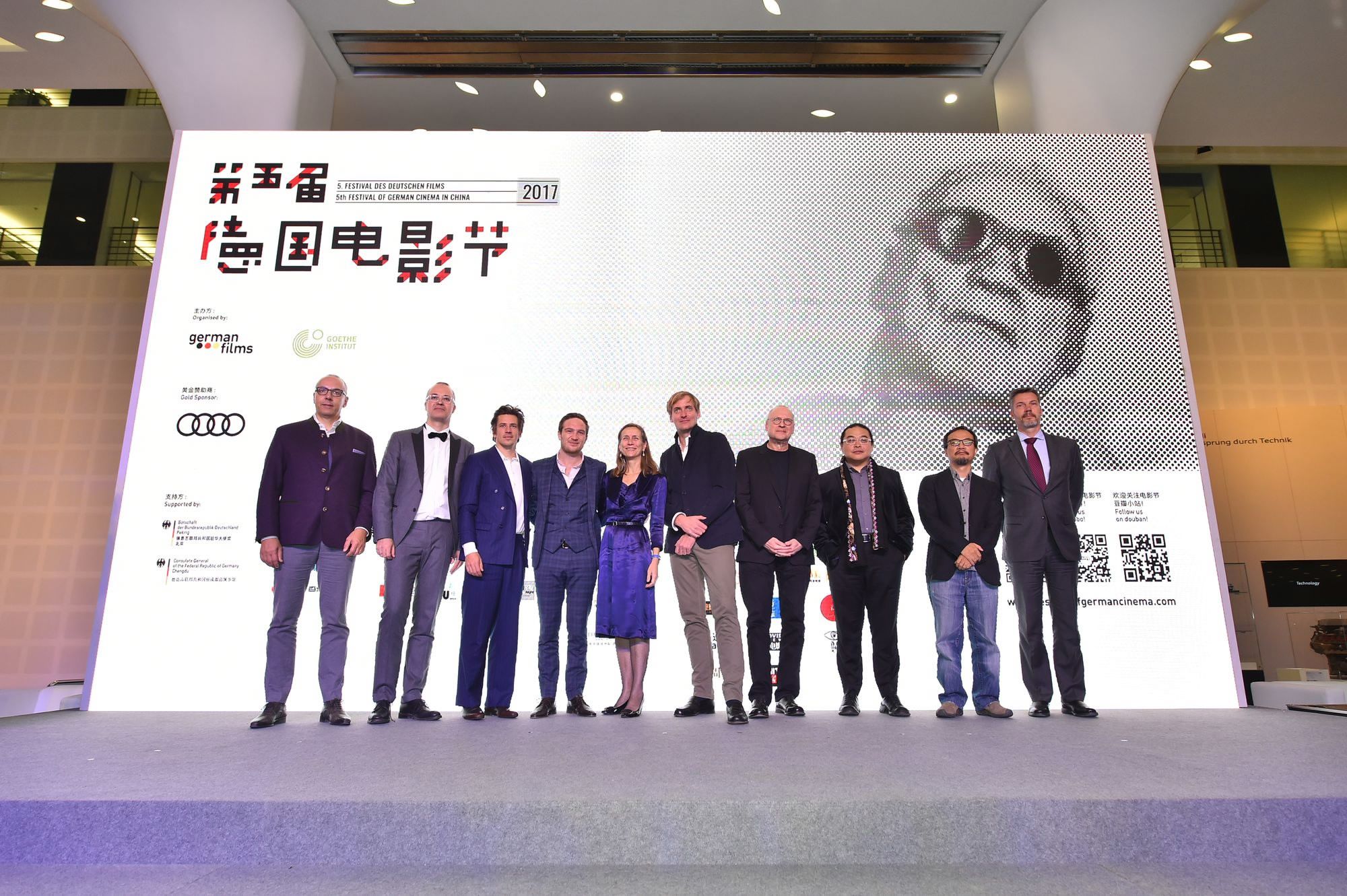
Culture
21:56, 14-Nov-2017
Chinese and German filmmakers aim to learn from each other
By Li Jingjing

Imagine this, you are a member of a jury, and sitting in the center of the court room is a fighter pilot who is on trial for murder. He has shot down a hijacked civilian jet, killing 164 passengers on board, to stop Islamic terrorists from crashing it into a stadium with 70,000 civilians.
Guilty or not, your vote after hearing arguments from the defense and the prosecution will determine his life.
This is the plot for the German film, "The Verdict." Though the story is a simple trial case, your opinion as an audience member will lead to different endings, as the story's finale will be determined by the audience's vote.
"I can’t wait to see Chinese audiences’ reaction," director Lars Kraume told CGTN. This film has aired on TV in Germany, Austria, and Switzerland last October and triggered much discussion after.

A poster for the film "The Verdict"/Photo via Goethe-Institut China
A poster for the film "The Verdict"/Photo via Goethe-Institut China
The film has been brought to the country at the 5th Festival of German Cinema in China, which kicked off in Beijing on Friday and will later tour to Chengdu in southwest China’s Sichuan Province, Nanjing in east China’s Jiangsu Province, and Shenzhen, in south China.
Kraume has received different reactions from different cultures. Most American audiences believed the pilot to be innocent, even after the 9/11 attacks. However, most Japanese voted definitively in favor of the pilot's guilt.
How Chinese audiences will react really excites Kraume.
"The Verdict" is one of many films that inspire audiences to think about reality, morality and history.
"The Bloom of Yesterday" directed by Chris Klaus focuses on the life of a Holocaust researcher, while "In Times of Fading Light," directed by Matti Geschonneck reveals society in East Berlin through the drama of a family.
Female equality and refugees are among the topics in the 15 selected German films.

Guests at the opening ceremony for 5th Festival of German Cinema in China./Photo via Goethe-Institut China
Guests at the opening ceremony for 5th Festival of German Cinema in China./Photo via Goethe-Institut China
"The way the German filmmakers focus on reality is really something Chinese filmmakers should learn," said Chinese director Yang Chao, a Silver Bear award winner at the 66th Berlin International Film Festival (Berlinale).
"I kept getting inspirations from German films and German culture," he added.
German films never lacked fans in China, and Yang is definitely an avid one. Last year, he took home the Silver Bear for Outstanding Artistic Contribution for Cinematography at Berlinale for his film "Crosscurrent."
He's become an advocate for German cinema and hopes more moviegoers in China will familiarize themselves with it as well. At the opening ceremony, Yang, together with Chinese director Liu Jian, whose work also made into the main competition at the 67th Berlinale, and a lineup of German filmmakers appeared to promote German films.

Chinese director Yang Chao shares his opinion with CGTN on German films./CGTN Photo
Chinese director Yang Chao shares his opinion with CGTN on German films./CGTN Photo
Communications between two countries
In the past few decades, Chinese filmmakers have been frequent participants at the Berlin International Film Festivals (Berlinale). Renowned directors Ang Lee, Zhang Yimou, were also among the Golden Bear and Silver Bear award winners.
While Chinese films are not unknown in Germany, people are working on bringing German films to Chinese audiences.
Enrico Brandt, the Cultural Consular at the German Embassy in China, who has been organizing all types of cultural communication events between the two countries, believed that Chinese audiences will be able to relate to these films because they deal with problems about how to face the past, present, and family relationships, which are universal problems.
He believes it’s important to allow Chinese audiences know Germany and its people’s life though movies.
German directors have also started to cooperate with the Chinese film industry. For example, director Florian Gallenberger directed "The Dairies of John Rabe" in 2009 which tells a true story during the Nanjing Massacre.

The 5th Festival of German Cinema in China will tour four cities in China./CGTN Photo
The 5th Festival of German Cinema in China will tour four cities in China./CGTN Photo
"When I watch Chinese films, the way the photography was, [and how] the imagery, the language works are completely different and very beautiful, and I strongly admire that," Kraume told CGTN, adding that he hopes to learn more about Chinese film during this tour.
This fall marked the 45th anniversary of the establishment of diplomatic relations between China and Germany.
"The relationship between the two countries is now mature, but shows no signs of slowing down," says Michael Clauss, the German ambassador to China, at the opening ceremony.
“Quite the contrary: our bilateral ties have never been stronger, especially in the field of culture.”

SITEMAP
Copyright © 2018 CGTN. Beijing ICP prepared NO.16065310-3
Copyright © 2018 CGTN. Beijing ICP prepared NO.16065310-3